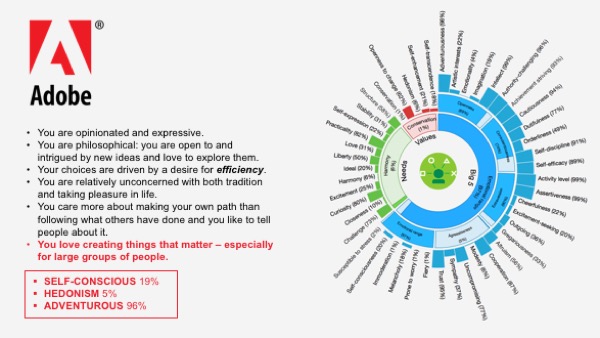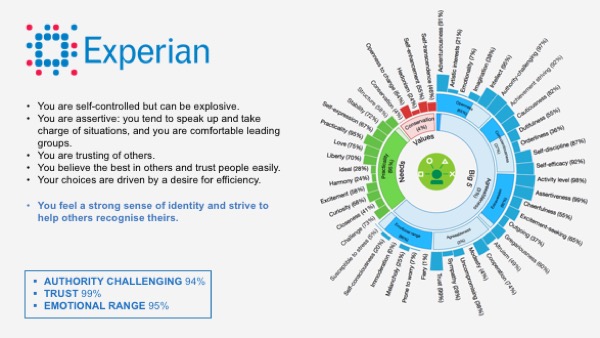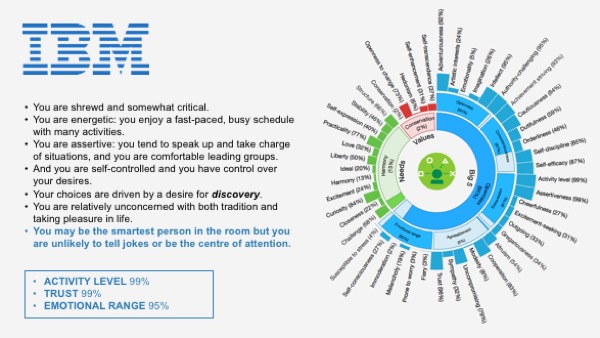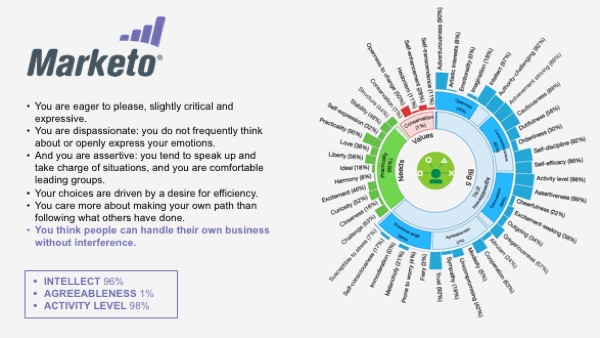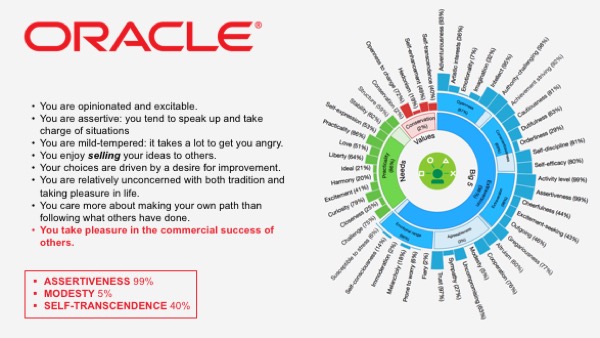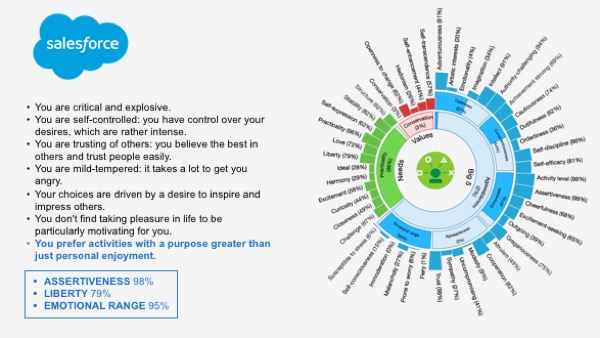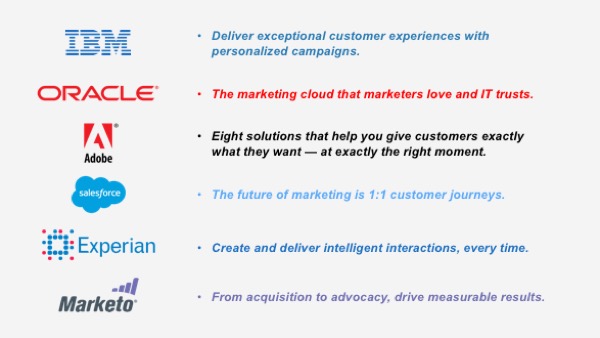

One of the more amusing moments at MarTech Europe in London was when Jeremy Waite — currently a strategic marketing evangelist at IBM, but previously with Salesforce Marketing Cloud and, before that, Adobe Marketing Cloud — presented the results of an experiment he conducted with IBM Watson.
To answer the question, “Why Are All Marketing Clouds the Same?”, he loaded the websites, social media accounts, and other online marketing content from 6 marketing cloud vendors — Adobe, Experian, IBM, Marketo, Oracle, and Salesforce — into IBM Watson and asked it to analyze their personalities.
These were the results of that personification (click on the images for larger versions):
Obviously to be taken with a grain of salt.
But Jeremy’s more serious point was that even though the major marketing clouds claim to do many of the same things, the “personalities” of their software — and their corporate cultures — vary significantly.
It’s not that there’s one best marketing cloud for everyone, but rather, depending on your particular business, some will be a better fit than others.
And in a heterogenous marketing stack world, it may be that the right fit for you is a best-of-breed mix of products from several different marketing cloud providers — as reported in the State of Marketing Technology 2017 study from earlier this month.
Get chiefmartec in your inbox
Join 42,000+ marketers and martech professionals who get my latest insights and analysis.
